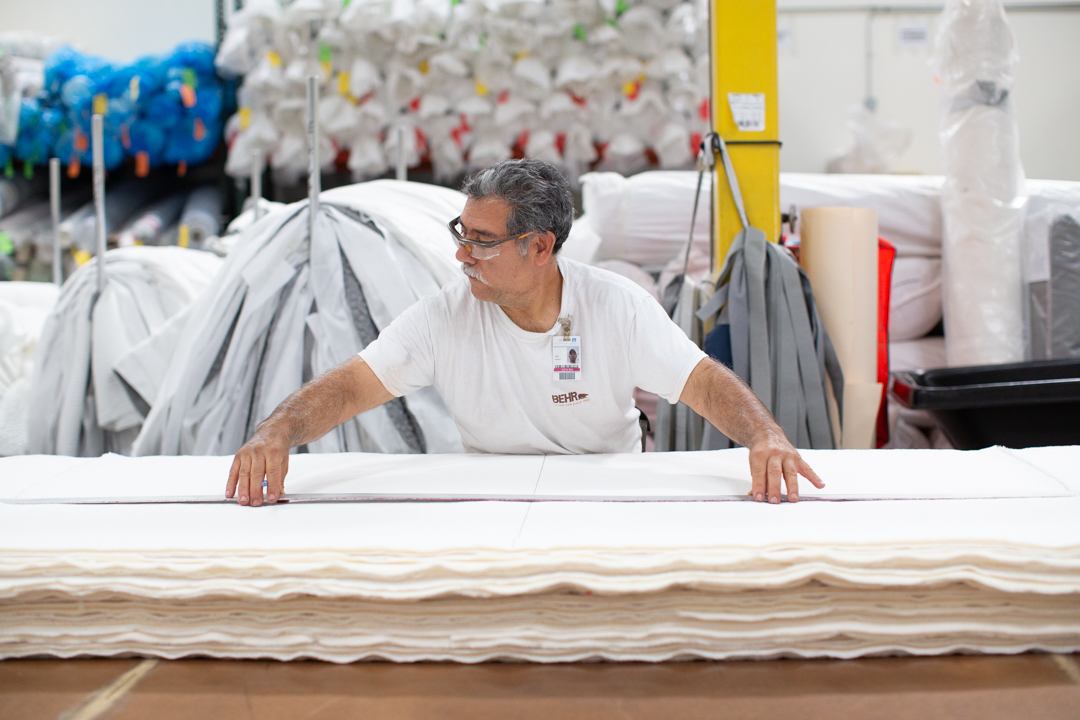When companies bring together the right people, tools, and intentions, they can do more than turn a profit—they can move the needle on some of the world’s biggest challenges. And while that influence can go in either direction, the best companies use it for good.
Enter the impact report.
For mission-driven businesses, impact reports are like a highlight reel meets a report card. They tell the story of what a company set out to do—socially, environmentally, or otherwise—and what they’ve actually achieved. More than a brag sheet, the best ones are honest, evolving, and grounded in accountability.
In other words, they’re proof that doing good isn’t just a tagline—it’s part of the business model.
So what exactly is corporate social responsibility (CSR)? And why are impact reports such a key part of the picture? Let’s break it down.

Read more: What is CSR? Corporate Social Responsibility Explained
What is Corporate Social Responsibility?
Corporate social responsibility (CSR) is the idea that companies should care about more than just the bottom line. It’s a business model that puts people and the planet on equal footing with profit—and aims to do right by all three.
According to Investopedia, CSR “encourages companies to operate in ways that enhance society and the environment while being accountable to their stakeholders and the public.” In practice, that might look like reducing carbon emissions, supporting fair labor practices, or giving back to local communities.
And while it’s easy to say the right things, it’s the follow-through that matters. As more companies try to position themselves as “green” or “ethical,” consumers are getting better at spotting when it’s all talk—aka greenwashing. That’s why CSR needs more than good intentions. It needs transparency. It needs proof. And, that’s where impact reports come in.
CSR and impact reports go hand-in-hand: CSR lays the foundation for the work, while impact reports document what’s actually being done. Together, they form a feedback loop that keeps companies honest—and moving forward.
What is an Impact Report?
It’s how companies show what they’ve done to walk the walk when it comes to social and environmental responsibility—and where they’re heading next. These reports typically include data, goals, and real-world results, all wrapped up in a narrative that helps stakeholders, customers, and employees understand the company’s bigger-picture mission.
And the trend is catching on. According to Harvard Business School, 90% of S&P 500 companies published CSR reports in 2019—up from just 20% in 2011. As more businesses release these reports, it’s raising the bar and pushing others to follow suit. Accountability becomes contagious (in a good way).

Read more: What is a CSR Report & Why Is It Important?
For purpose-driven companies, impact reports are more than PR—they’re proof. They show transparency, build trust, and create opportunities to share what’s working and where there’s room to grow.
Here are just a few reasons impact reports matter—and how we approached ours in Avocado’s 2024 Impact Report, Dream of Better:
- Accountability and Transparency: Numbers matter. A great impact report backs a company’s mission with facts and progress, not just promises. Being transparent about that journey—what’s working, what’s still in progress—builds trust and credibility.
In our 2024 report, we shared a snapshot of how we’ve cut our carbon footprint over time: from 32,750 tons of CO₂ emissions in 2021 to an estimated 17,000 in 2024. Fewer emissions, more progress.
- Education: Impact reports are also a great platform to inform and empower. When done right, they pull back the curtain and help consumers understand the deeper story behind products and materials.
In our case? We highlighted the environmental benefits of organic latex. Swapping 200 polyurethane foam mattresses for organic latex can reduce 54,600 kg of CO₂ emissions (the equivalent of taking 12 cars off the road for a year!) and save 26.3 million liters of water—enough for more than 1,100 daily showers. - Collaboration & Morale: Impact reports can spotlight the real people making change happen—from team members to nonprofit partners. This helps humanize the company, boost morale, and celebrate shared wins.
In our 2024 report, we featured Tia Avila-Conklin, our Mattress Donation Program Manager, who helps ensure that used mattresses go to people in need rather than landfills. As Tia puts it, “It’s a powerful way to turn waste into impact.” That’s the kind of behind-the-scenes story that makes sustainability feel personal—and powerful. - Celebration: When a company hits a major milestone, it deserves more than a quiet internal memo. Impact reports create space to celebrate those wins and share them publicly.
In 2024, we were proud to announce that through our 1% for the Planet membership, Avocado has donated $11.4 million to environmental nonprofits—supporting conservation, climate action, education, and more. That funding has gone to incredible partners like The Nature Conservancy, Bee Regenerative, and Women’s Earth Alliance, to name a few.
- Future Planning: Impact reports aren’t just about where you’ve been—they’re also a place to declare where you’re going. The most meaningful CSR efforts are forward-thinking and always evolving.
In Dream of Better, we outlined our next steps: from shifting to 100% renewable energy in our manufacturing by 2027, to exploring regenerative materials and improving circularity in our supply chain. Big ideas, bigger goals.
How to Be an Impact-Savvy Shopper
Curious if your favorite brands are really living up to their values? One of the easiest ways to find out is by reading their impact report—if they have one.
Most brands that take corporate responsibility seriously will publish their reports publicly (ours included). It’s a powerful way to get a peek behind the curtain: What are they doing to reduce their footprint? Are they supporting their workers and communities? Are their goals measurable—or just marketing fluff?
Reading impact reports can sharpen your instincts as a consumer. As you browse, ask yourself:
- Do this company’s values align with mine?
- Are they making real progress—or just pretty promises?
- Do I feel good supporting this brand now that I know more?
Not every company will hit the mark. But the more we reward transparency and accountability, the more we push the bar higher. Because when we shop with intention—and when companies back up their impact with action—we all move closer to a future where doing good is the norm, not the exception.
And hey, that’s the kind of progress worth reporting on.

Read more: Dream of Better: Our 2024 Impact Report
Have feedback on our story? Email [email protected] to let us know what you think!

Shop Pillows
The Essential Organic Pillow Collection
Gentle, breathable, non-toxic support.







